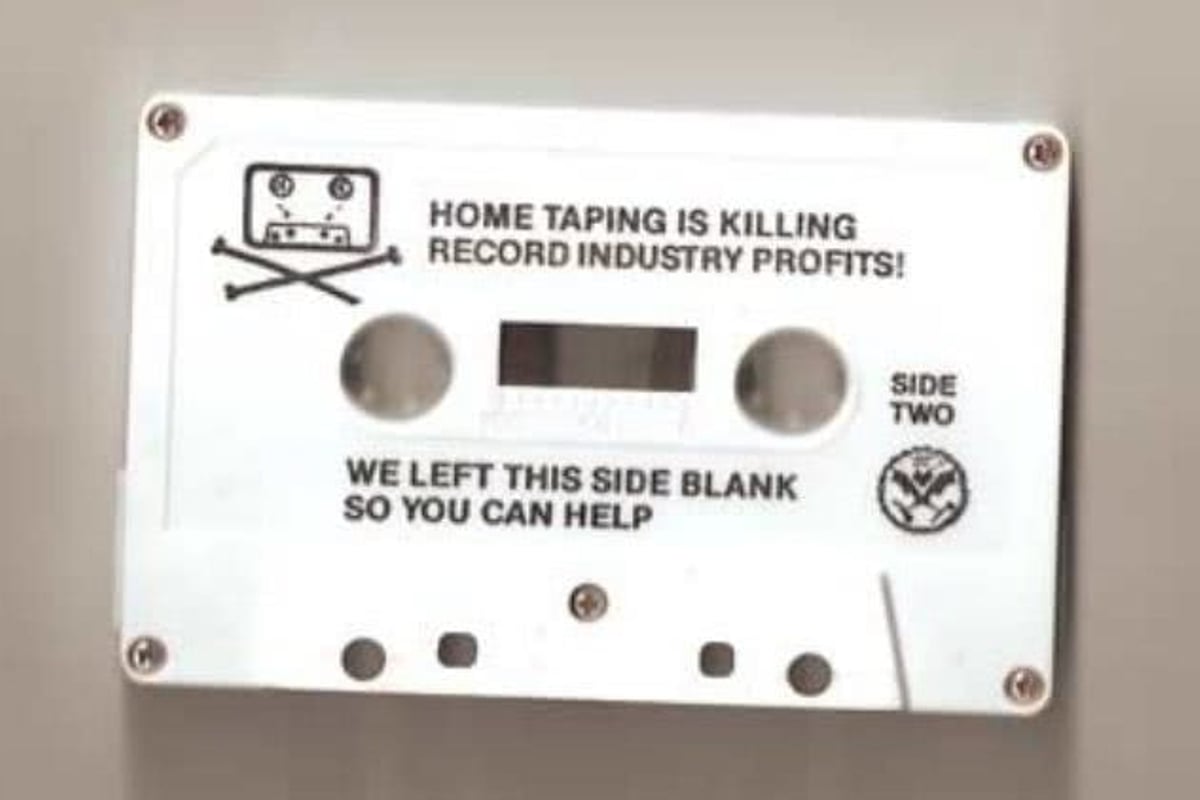Maybe I would steal a car: the extreme uselessness of anti-piracy campaigns

I’m going to start with the assumption that we’ve all seen those dramatic “You Wouldn’t Steal A Car” anti-piracy commercials at the start of DVDs, with the watery nu-metal riffs and a man committing brazen acts of theft: of a car, a purse, a television, a mobile phone – and then the attempt to link these crimes with that of piracy.
Often it is unskippable too, such is the urgency of this message, but it misses the mark entirely. Firstly, it is impossibly naff, despite the down with the kids riffage. Secondly, it suggests that car/phone/purse thieves don’t watch DVDs, which cannot be the case. And most importantly, these things are not the same. Comparing piracy with car theft only hammers home the slight nature of downloading a copy of Happy Gilmore.
Home Taping Is Killing Music appeared in 1981 due to the rise of cheap blank cassette tapes. Technology, cheapness, and ease won out over the scaremonging, and people continued to dub tapes. Guess what? The record industry survived, despite my taped copy of Black Sunday by Cypress Hill.
Don’t Copy That Floppy attempted the same messaging in 1992 for floppy disk video games/programs. Starring an unwittingly hilarious rapper named MC Double Def DP (DP stands for Disk Protector) he appears after hearing kids talk about copying a game and raps a ten-verse song about the perils of piracy.
And I quote (drop the beat):
Did I hear you right, did I hear you sayin’
That you’re gonna make a copy of a game without payin’?
Come on, guys, I thought you knew better.
Don’t copy that floppy
The whole thing is below.
Now, I would be shocked if that stopped a single human from pirating an overpriced game. It may have stopped a few kids from listening to rap music.
You Can Click But You Can’t Hide — set up in 2004 to stop the flood of torrent sites — used a different tact. Along with the usual ‘piracy is directly responsible for killing the creative industries you rely upon for your entertainment’ party line, they also suggested that it is now easier to be caught. “Stealing movies leaves a trail. The only way not to get caught is to stop”, they implore you, and while the Internet does feel anonymous at times, this at least seems conceivable. It also failed.
EMI and Sony BMG’s much-maligned Copy-Controlled CDs were a massive failure, and only resulted in a number of (still-copyable) CDs being unplayable in certain car stereos and PCs.
The main problem is that piracy is easy. Piracy is quick. Piracy is relatively anonymous. The very same network that has allowed increased distribution opportunities for record labels, studios, and content creators, has also fostered the attitude that everything should be on tap – available right now. If we can’t find it through legal means, then illegal will do just fine.
It’s the ease, the free nature, the lack of an actual physical tangible item, the endless nature of files and streams.
UK anti-piracy and research firm MUSO recently found that 83% of those who pirate claim they tried to access whatever they stole legally. When the distribution channel failed, they went black market.
The same firm also found piracy rose 1.6% from 2016 to 2017. Clearly if people want it, they will take it. No amount of scaremonger or appealing to our better natures will help.
Spotify will stem piracy. As Louis CK said (I understand the perils of quoting him in 2018) when releasing his stand up specials for $5 through his website, he tried to make it “so close to stealing that people will just hopeful buy it”.
Spotify makes it easy. Apple Music makes it easy. Netflix and Hulu and YouTube make it easy.
People don’t want to steal. But they want access. Easy, cheap access to entertainment will stem piracy. That’s the only answer.
This article originally appeared on The Industry Observer, which is now part of The Music Network.






























